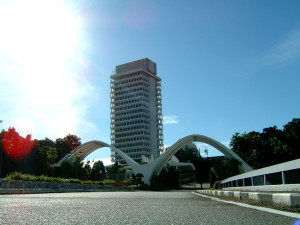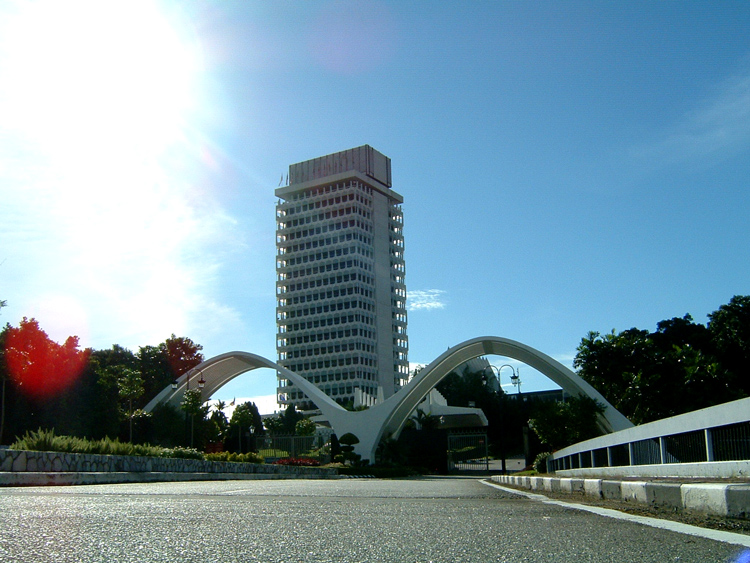 Malaysia’s participation in the Trans-Pacific Partnership (TPP) is in its national interest, as non-participation will put at risk the country’s policy of close and friendly relations with other countries, according to a newly released cost-benefit analysis study.
Malaysia’s participation in the Trans-Pacific Partnership (TPP) is in its national interest, as non-participation will put at risk the country’s policy of close and friendly relations with other countries, according to a newly released cost-benefit analysis study.
The National Interest Analysis of Malaysia’s Participation in the Trans-Pacific Partnership said Malaysia maintains good relations with most countries, while it engages mainly with the Association of Southeast Asian Nations (ASEAN) and the bloc’s dialogue partners in terms of formal economic arrangements.
If Malaysia does not join the TPP, it will send a strong signal that there are countries it wishes to develop close economic and commercial ties with in the future, and others which it places lesser priority on, said the analysis undertaken by the Institute of Strategic and International Studies (ISIS) Malaysia on behalf of the Ministry of International Trade and Industry (MITI).
“Closely related is the fact that Malaysia passes on a major opportunity to diversify its economic relationships, which increases the possibility of it being subject to disproportionate political influences,” said ISIS.
According to the analysis, the most direct and obvious consequence of Malaysia’s non-participation will be the inability of Malaysian exporters to access the lower or zero tariffs of Malaysia’s export markets, according to a report by state-run news agency Bernama.
Industries that stand to be affected by non-participation include palm oil, textiles and clothing and, prospectively, automotive components.
On palm oil, Canada currently levies an import duty of 1% on Malaysian refined palm oil and palm kernel oil, while Indonesia, a non-TPP participant that enjoys Canada’s generalizes scheme of preferences privilege, can export duty-free.
For the textiles and apparel industry, the U.S. is Malaysia’s most important export destination, followed by Japan. By opting out of the TPP, Malaysia risks trade diversion, as TPP participating countries have preferential access to one another’s markets.
At the national level, the overall impact may not seem large, but the cost of trade diversion can be very important for specific industries and for Malaysia’s export earnings, ISIS pointed out.
The study also indicates that investments received via TPP participation will be potentially larger, and thus a greater loss will be sustained in the event of non-participation.
Malaysia’s investments made abroad will also not be covered by the higher standards and stricter rules that the TPP countries will have to adhere to. Hence, the decision not to follow through with the TPP is unlikely to be positively viewed by investors, both foreign and domestic.
“Given that the 2005 US-Malaysia FTA negotiations are now integrated into the TPP, US companies, investors and bankers, in particular, are expected to be especially negative,” it said.
If Malaysia were not to participate in the TPP, it is also unlikely to be able to restart the Malaysia-European Union free trade agreement (FTA) negotiations, as the latter has similar requirements and standards to the TPP.
“Thus, the failure to effect the TPP could turn out to be a double jeopardy by denying Malaysia both access to Trans-Pacific and European countries,” the study revealed.
Countries within the TPP that have finalized arrangements with both regions will have a significant competitive advantage compared to those that do not.
Six TPP countries have already concluded EU arrangements—Canada, Chile, Mexico, Peru, Singapore and, most recently, Vietnam.
Meanwhile, the U.S. and the EU are in the midst of negotiating the Transatlantic Trade and Investment Partnership (TTIP) and have met more than 10 times.
Australia, New Zealand, Japan, and Malaysia have indicated their interest to either start or restart FTA negotiations. If the TTIP is concluded, it will, together with the TPP, be the largest of such arrangements among developed countries, setting the de facto standards for global trade and investment.
“If Malaysia were not to join the TPP, it could be the only country to do so and also not secure an arrangement with the EU,” the paper said.
It also said the TPP provides a first layer of defense against rising protectionism in the form of non-tariff measures (NTMs).
“Members of an agreement such as the TPP are not entirely free from NTMs but given the transparency rules, complaints and dispute settlement procedures, [NTMs] may be expected to be much less frequently experienced than would otherwise be the case,” it said.
Lastly, without the TPP, Malaysia will not have sufficient incentives to liberalize its economy and will be unlikely to undertake economic reforms needed to lift the population’s welfare.
Photo: Leoboudv





